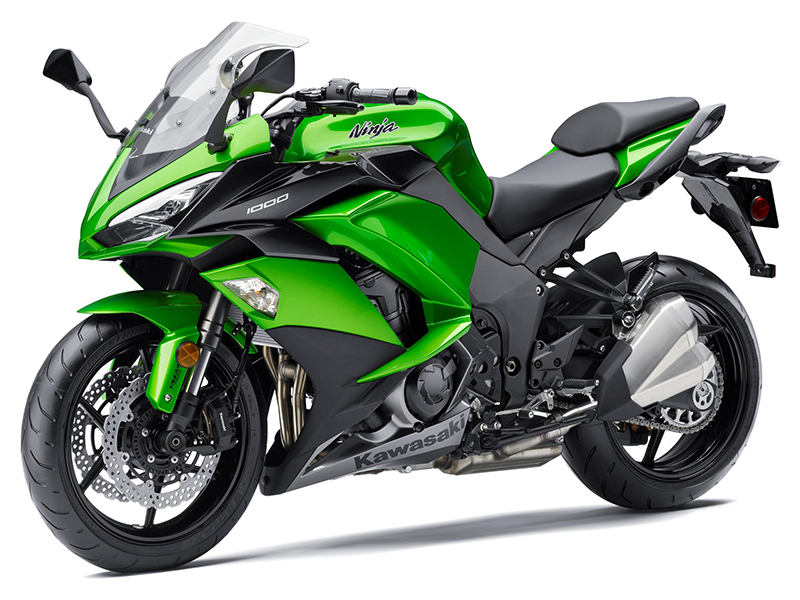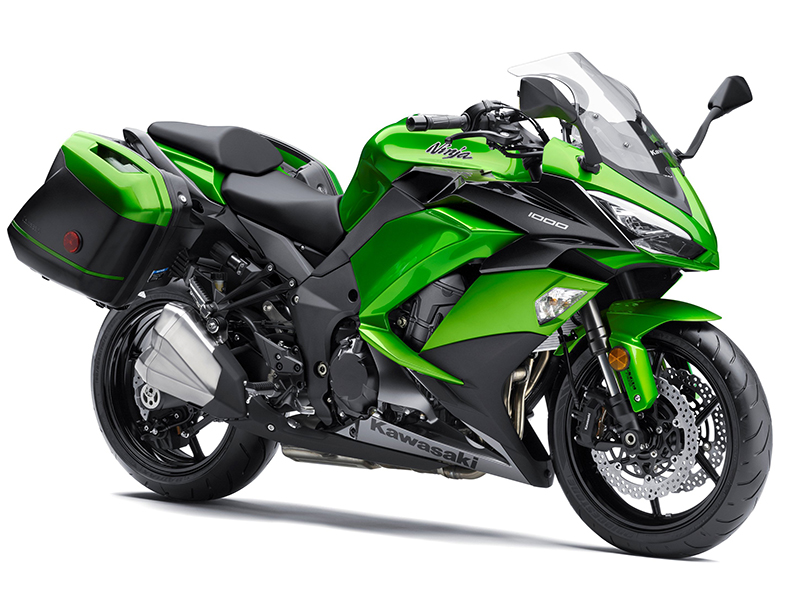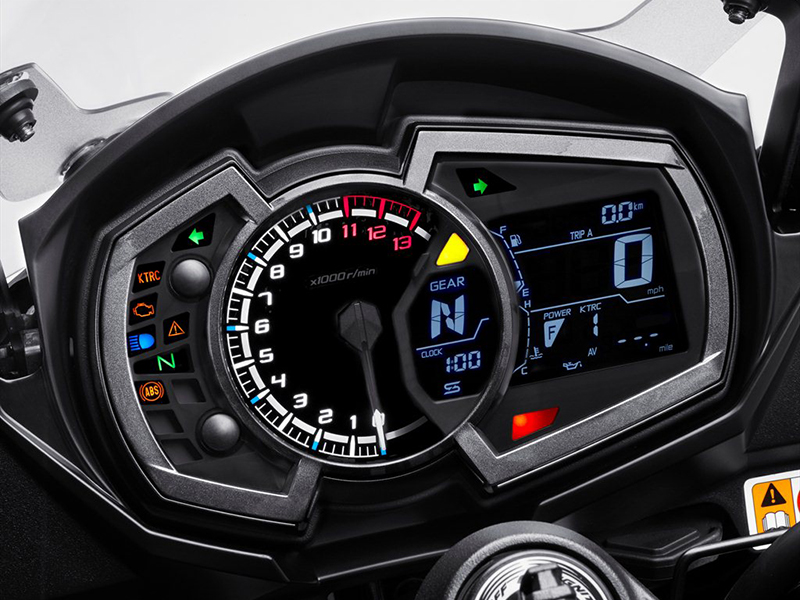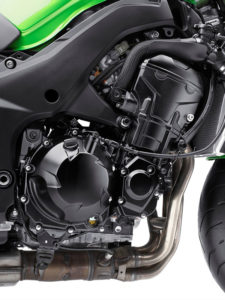
When it comes to liter-sized, fully-faired sportbikes, Kawasaki offers two choices. For those interested in cutting-edge, track-ready performance, there’s the Ninja ZX-10R, which won the World Superbike Championship in 2015 and 2016. For those interested in real-world, street-focused performance, there’s the Ninja 1000, which offers more comfort, better wind protection and a full line of sport-touring accessories. And it’s no slouch—the Ninja 1000’s liquid-cooled, 1,043cc in-line four sends 125 horsepower to the rear wheel.
Introduced for 2011, the Ninja 1000 was thoroughly three years later, with improvements to its engine, brakes, suspension, ergonomics, instrumentation and touring accessories, and with engine modes, traction control and ABS added as standard features.
Read our 2014 Kawasaki Ninja 1000 ABS review

For 2017, Kawasaki has updated the Ninja 1000’s electronics, wind protection, comfort, styling and instrumentation. A new five-axis Bosch Inertial Measurement Unit (IMU) provides input for Kawasaki Cornering Management Function (KCMF), Kawasaki TRaction Control (KTRC) and Kawasaki Intelligent anti-lock Brake System (KIBS), which work together to modulate “brake force and engine power to facilitate smooth transition from acceleration to braking and back again, and to assist riders in tracing their intended line through the corner.” New ECU settings provider smoother power delivery and support the KCMF electronics.

The new Ninja 1000 also has a wider fairing and a taller windscreen for better wind protection, a new five-way adjustable clutch lever for better comfort and control, wider mirrors with more adjustability and a new, two-part seat with a wider rider seat, a longer passenger seat with thicker padding and underseat dampers to reduce vibration.

Styling has been updated with a sharper front cowl design, a chin spoiler similar to the ones on the Ninja H2 and Ninja ZX-10R and a new headlight that looks more aggressive while improving visibility. Complementing the Ninja’s new styling and technology is an all-new instrument panel that features an analog tachometer and a negatively-lit LCD panel with a new shift light and gear position indicator.
The 2017 Kawasaki Ninja 1000 ABS will be available in Candy Lime Green/Metallic Graphite Gray or Metallic Spark Black/Metallic Graphite Gray for $12,199, and it will be in dealerships in March 2017.








